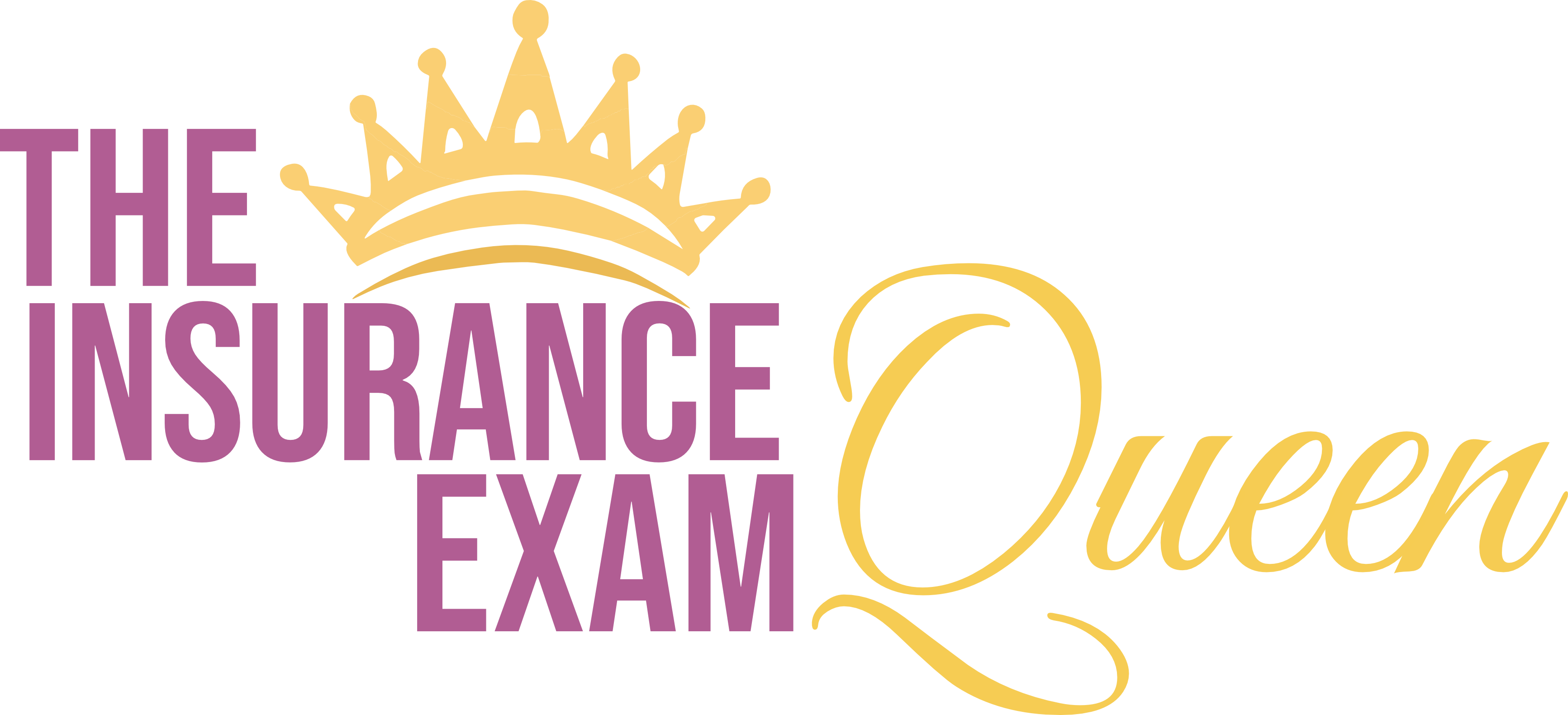General Insurance
Study Tip: Make note cards with the Bolded words on one side and the definition on the other.
- Insurance is the transfer of risk of loss.
- Risk is the uncertainty or chance of loss occurring
Two types of Risk:
- Pure Risk is loss or nothing, no chance of gain, Only Pure Risks are insurable
Speculative loss or gain/win or lose: for example, gambling.
- Handling Risk: Sharing, Transfer, Avoidance, Reduction, Retention (I am a STARR @ Handling Risk)
Exposure is the unit of measurement to determine rates for an insured based on how risky they are.
Hazards increase the chance of the risk occurring.
Physical Hazards are material and structural things you can see and touch.
Moral Hazards is lying on purpose, example: lying on the insurance application.
Morale Hazards is a sense of carelessness.
Peril is the cause of loss like a fire or accident.
Loss is the reduction or disappearance of value.
Indemnity: restore the insured to their previous financial condition after the loss.
The Law of Large Numbers says the more stats you have to look at, the more predictable losses will be.
Certificates of Authority allow insurer to sell in that state making them admitted and authorized.
Stock Companies are owned by shareholders, issue non-participating policies and dividends are taxed.
Mutual Companies are owned by policyholders, issue participating policies, dividends are not taxed.
Reinsurance is when a company indemnifies another. Indemnify is to make whole again after a loss.
Domestic Insurer is a state they are incorporated (headquartered and selling). Hint: One State.
Foreign Insurer is a state where they are not head quartered, but they are selling. Hint: Two States
Alien is completely outside of the United States. Hint: Country.
Law of Agency = agent represents the insurer and the knowledge of the agent is knowledge of the insurer.
Agent Authority (Authority of the Agent):
Express is written/contract.
Implied is assumed by insurer.
Apparent (perceived) is assumed by customer (business cards/letterhead/stationary).
Fiduciary Responsibility = agent submits premium collected to the insurance company.
Elements of a Legal Contract:
Agreement: Known as Offer and Acceptance.
Offer = Customer submits and application.
Acceptance = insurer issues policy.
Consideration: Both parties bring something of value.
- Consideration on the side of the insured = Application + Premium
- Consideration on the side of the insurer = (promise to pay a claim)
Competent Parties: Not under the influence of drugs or alcohol, sound mind, legal age (felons are ok).
Legal Purpose: Cannot be against public policy/break the law.
Adhesion: Insurer write the policy, customer either takes it or leaves it.
Aleatory: Unequal Exchange (customer pays small monthly premium, insurer pays very large claim).
Personal: Between the customer and the insurer.
Unilateral: One sided promise, only the insurer is legally bound to do anything.
Conditional: Both parties have rules/duties they must follow/do.
Reasonable Expectations: A customer can expect the coverage if an agent implied it though during the sale.
Representation: statements that are believed to be true but are not guaranteed to be true.
Misrepresentation: an untrue statement.
Warranty: absolutely true statements.
Concealment: with holding or hiding on the application.
Fraud: deceive or lying to cheat the insurance company.
Recommended: Gold
The GOLD Course is ALWAYS the recommended class series for all students as it teaches the material in more depth. Over 30 hours of the most in depth classes with a more intensive teaching of the topic. Learn more about P&C GOLD Learn more about L&H GOLD
Share the Post
Click to share the post to your network





